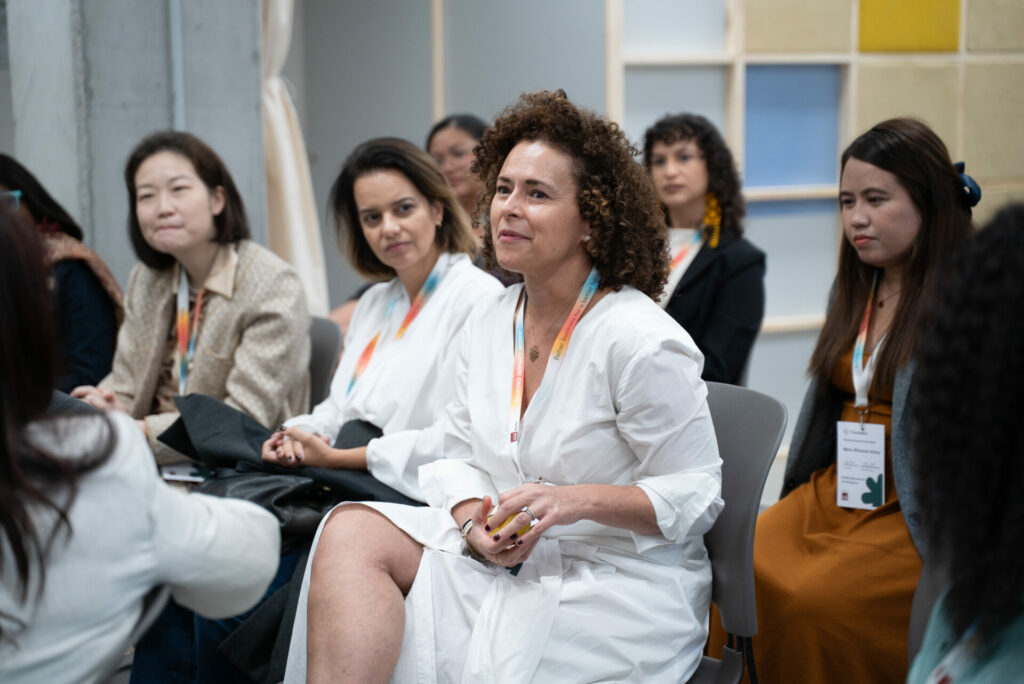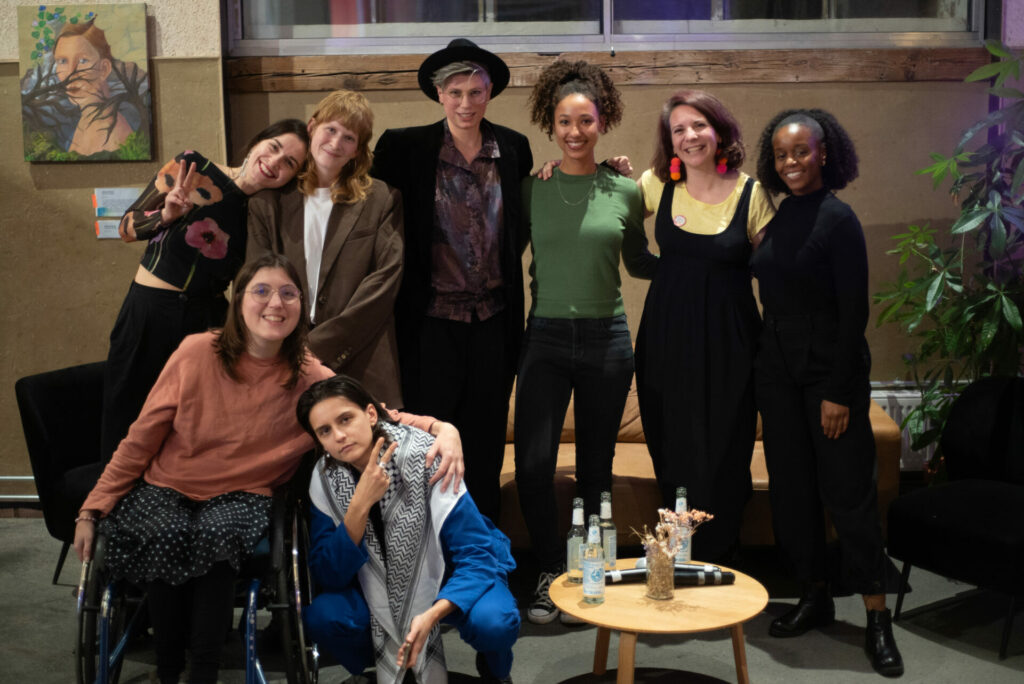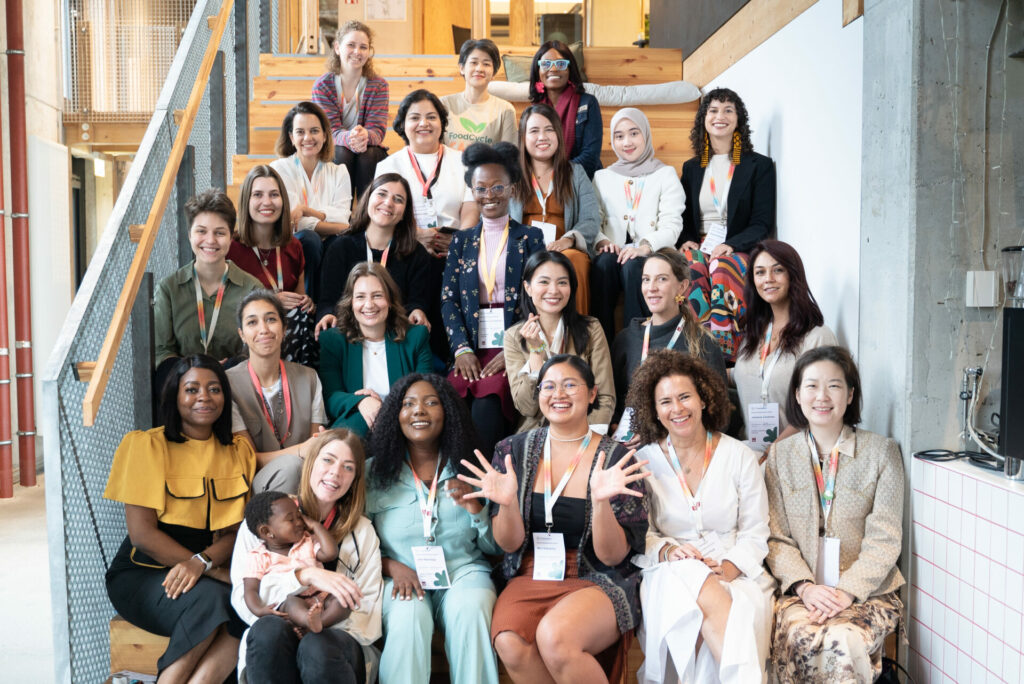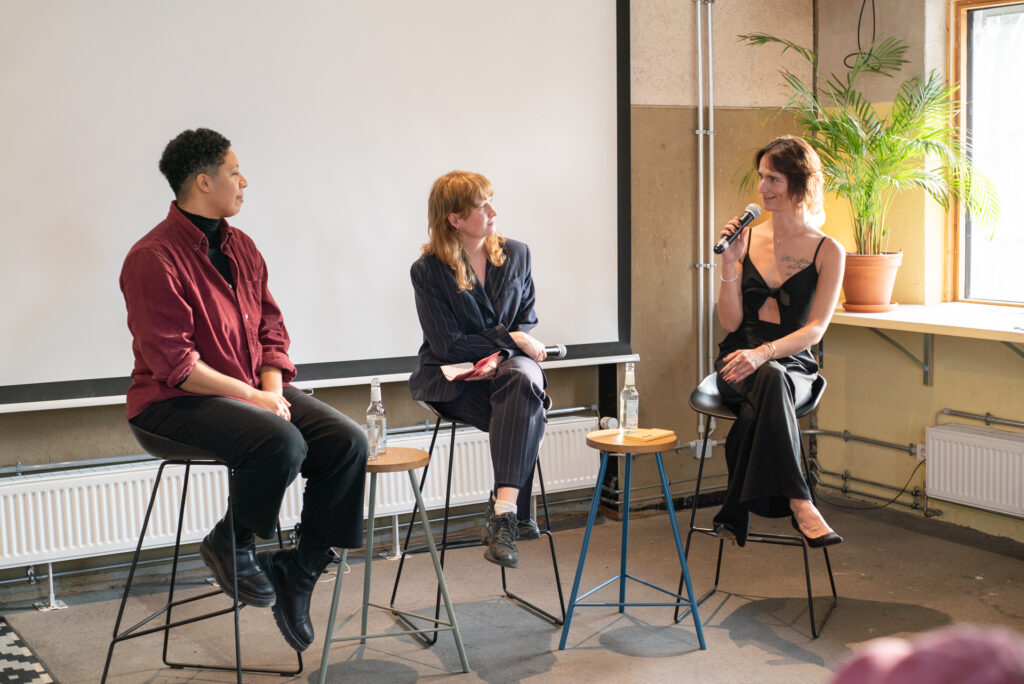Inclusive entrepreneurial ecosystems: why intersectionality matters

We need more women pursuing a career as entrepreneurs! In recent years, this narrative has resonated widely across various entrepreneurial ecosystems and startup support programs. Since the number of women starting their own startup has somehow been stagnating at around 20% in Germany, these claims seemed valid. Why shouldn't more women become founders and refer to themselves as so-called #girlbosses? For a long time, I also thought that if we just offered women more assistance, more training and mentoring, then everything would be different. But somehow, all these efforts did not translate into skyrocketing numbers of aspiring women entrepreneurs. As part of my master's thesis, I started to look into the gendered mechanisms that exist within entrepreneurial ecosystems, recognizing the unique challenges many face. This article not only shares my key findings but also reflects my personal journey as a feminist researcher, highlighting the importance of understanding diverse experiences.
From female to feminist entrepreneurship
From conversations with coordinators from entrepreneurship support programs and my own experiences as entrepreneur I knew that the word “feminist” was hardly ever used in entrepreneurship bubbles. They were afraid that other people might consider them too radical. I guess that’s why the concept of female entrepreneurship became so popular. It promoted this idea of making the entrepreneurship sphere accessible to women and thus showing a certain degree of inclusiveness without committing to being too transformative or too “radical” as a feminist label would proclaim. When examining the term women it might be assumed that this encompasses all individuals and provides equal opportunities for entrepreneurship. However, the term women typically suggests someone who is white, able-bodied, cisgender, young, middle-class, and heterosexual. I don’t claim that a Black disabled woman can’t become an entrepreneur.
I simply wanted to emphasize that we have unconscious assumptions about the typical “female entrepreneur” profile and therefore, those assumptions are reproduced through corresponding female entrepreneurship support programs. Simply increasing the number of women in entrepreneurial environments did not necessarily lead to structural changes that would make these environments more inclusive for everyone. By structures, I refer to the unpaid care work that women do every day and thus impede their entrepreneurial careers, the gender funding gap that still hinder women from receiving money from investors or the micro aggressions they experience in entrepreneurial ecosystems in general. It became apparent to me that feminist perspectives and claims are necessary in order to articulate and dismantle oppressive and discriminatory structures, while also offering new ways and concepts that promote new ways ahead.
The Empower Now programme at Impact Hub Berlin

So, in theory it is clear that feminist perspectives on entrepreneurship are needed, but how could this be implemented in practice? This was the moment when I found the Empower Now Program. It was the first incubation program that was targeting FINTA* entrepreneurs (female, inter, non-binary, trans and agender individuals) that are facing multiple discrimination. Hence, it was not only a program targeting females, but instead it was designed from an intersectional angle. Very briefly explained, intersectionality describes the experienced discrimination of individuals because of two or more intersecting identity markers, such as gender and ethnicity for example.
Intersectionality has become quite a buzzword these days oftentimes diminishing its real transformative potential for social change. Therefore, I wanted to highlight that intersectionality has been built on decades of activist work carried out by Black feminists dating back to the 1850’s making systems of oppression and domination visible. Applying an explicit intersectional approach in business incubation was something that I had hardly ever seen (and has hardly been researched).
I interviewed one of the program coordinators as well as six entrepreneurs that were part of the incubation program. My goal was to find out how intersectionality contributes to making business incubation more inclusive and accessible to minority entrepreneurs. Here are three research findings that I believe are valuable and worth sharing (if you want to read the whole thesis, you can download it for free here).
Recognising the challenges and needs of intersectional identities

As I explained earlier, there is no such thing as a homogeneous group of women. When speaking of women, we must take their heterogeneity into account. In other words, special needs, particular experiences, and identity struggle seldom find their way into business incubation programs. Moving beyond the binary of female/male as well as being aware of individual problems, needs, and struggles is key if program coordinators want to design truly intersectional business incubation programs. Incubation programs should begin to acknowledge the significance and intersection of various identity markers. This can be directed towards gender, socio-economic status, ethnicity, age, or dis/ability, just to name a few examples.
Intersectional business incubation in practice: Before the actual start of the program, it is crucial to design a selection and onboarding process that is in accordance with incubatees’ needs. This can be done through an application sheet that includes a section about the entrepreneur’s special needs (e.g. a person is neurodivergent and therefore has special needs in terms of being able to participate in online settings) and/or previous experiences of discrimination.
Considering business incubation as safe(r) space

It is crucial to establish an authentic environment characterized by a trustful and honest atmosphere within an incubation setting. Incubatees must feel accepted and truly valued with their whole intersectional identities. The curation of the group must be considered, too. If the program structure allows for moments of intimacy and sharing, group bonding can be enhanced, ultimately resulting in an atmosphere of personal growth and learning.
Intersectional business incubation in practice: Ensuring access to such a space requires financial resources. It is crucial to consider the actual expenses associated with intersectionality in terms of personnel and expertise. The experts (mentors, coaches) that are part of the incubation program should have knowledge of intersectionality and be able to approach different topics from an intersectional perspective.
Challenging Social Norms in Entrepreneurial Ecosystems
As previously mentioned, safe(r) spaces are important for marginalized entrepreneurs. However, we need to consider how the entire entrepreneurial ecosystem can be positively affected by intersectional business incubation programs and thus making the incubatees’ projects visible as well as creating a knowledge transfer of intersectional concepts and theory.
Intersectional business incubation in practice:
It is crucial for intersectional business incubation programs to collaborate with majority groups (e.g. men) to bring about lasting social change in entrepreneurial ecosystems. This can lead to a better understanding of the processes of discrimination, domination, privilege, and inequality in these ecosystems.
Where to go from here?
Intersectional business incubation is not truly executed through an “add-on” perspective. We need to consider intersectionality holistically as a tool to unlearn deeply rooted assumptions about entrepreneurship. The deeper I delved into my thesis, the more I understood that the image of what entrepreneurship should look like was immensely flawed. We will not reach true quality if we only add more women to the mix. Instead, we need to start acknowledging the oftentimes complex lived realities of the people and build new structures that include everyone.
About the author
Jessica Koennecke is an entrepreneur, mentor and researcher. In 2017, she founded a sustainable e-commerce platform for imperfect products. Right now, she is a PhD Fellow at Aarhus University and supports nascent entrepreneurs as a mentor.
Recommended books
Why we matter by Emilia Roig (only available in German)
The Feminist Killjoy Handbook by Sara Ahmed (available in English and soon in German)
Feminism is for Everybody: Passionate Politics by bell hooks (available in English and German)
Read Jessica’s master’s thesis in full length here.
We want to thank the author Jessica Könnecke for her contribution. If you are interested in working with us on Empower Now, please get in touch with Vera: empowernow.berlin@impacthub.net.